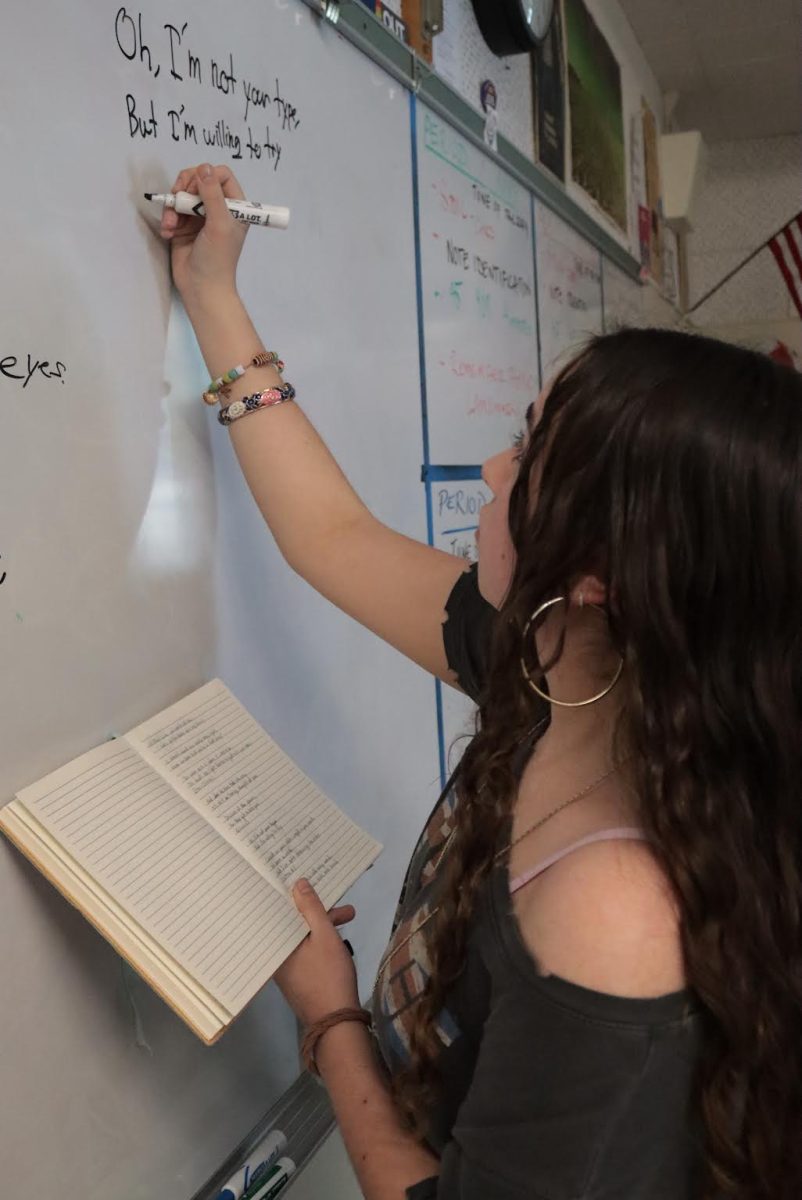New discipline policy uses communication, less police contact
The new policy is part of a district wide effort to reduce the number of suspensions and expulsions for minor offenses.
February 5, 2015
At Augustus Hawkins High School in South L.A., counselors use communication to work out differences between students as part of the school’s new approach to discipline, instead of suspending students on minor crimes.
Los Angeles Unified School District announced a new program that the school police will not be able to cite students anymore for minor offenses, like fighting or insignificant theft. Instead of being punished, the students will be referred to counseling or other programs, for the issues to be worked out.
“Our whole staff works collaboratively with the students to create a safe school. We don’t hesitate to offer other alternative supports. (Our) staff isn’t focused on punishment, it’s focused on teaching expected behaviors,” Principal Deb Smith said. “But if they (the offenses) are minor, the school administration should handle it.”
The purpose of the program being passed is to decrease student contact with the police and to have more students focus on their academics. Students who handle minor offenses with the police drop out and get in more serious trouble with the law.
National studies show that one arrest doubles a student’s chance of being a dropout from school, according to Ruth Cusick of the Los Angeles pro bono law firm Public Counsel from the Los Angeles Times article “L.A. Unified school police to stop citing students for minor offenses” by Teresa Watanabe on Aug. 19, 2014.
Last year, the Los Angeles Board of Education became the first in California to ban minor offenses for suspension.
William Etue, Juvenile Arrest Division Coordinator of the Los Angeles School Police Department, helped draft the policy and says the district needs to stop punishing students for their mistakes.
“As a whole, kids will make mistakes in their lives and we need to stop punishing them,” Etue said. “The (new policy) will be successful how the students and staff respect it and how willing they are to make a change on their own.”
The changes were made after two years of discussion among the Community Rights Campaign, Public Counsel, administrators, police and others. The policy builds on from earlier agreements to reduce police citations for students who were tardy or absent.
Ashley Franklin, the lead organizer of the Community Rights Campaign, said Superintendent Michelle King and School Police Chief Steven Zipperman were great contributors for having less citations being made in LAUSD.
“Young people thought something should be done for more school justice,” Franklin said. “So students started to advocate to transform their community and restore justice in schools.”







